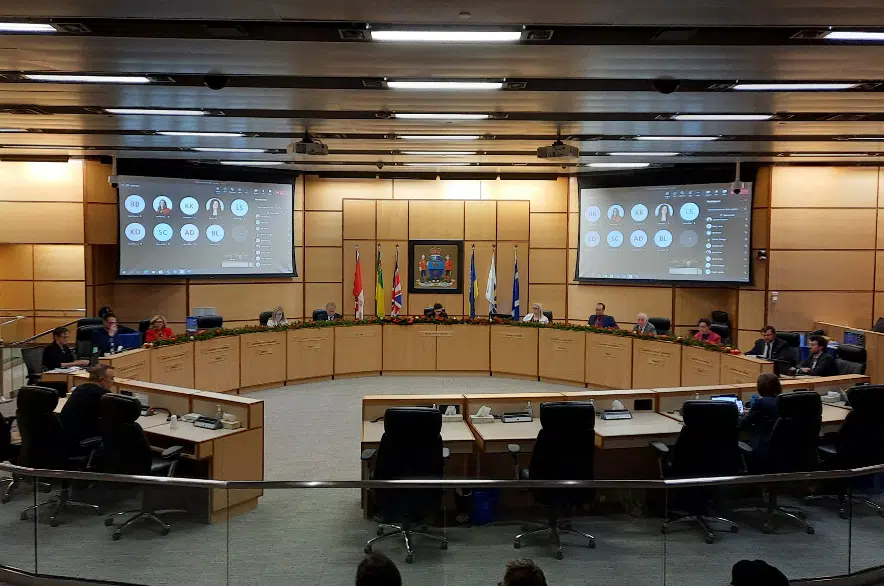Even though the increase to Regina’s property tax mill rate was brought down by a full percentage point, there were still murmurs of “shame” from the gallery as the vote passed.
On the third day of council’s debates on the 2023-2024 budget, Coun. Lori Bresciani moved to lower the proposed 4.67 per cent mill rate increase down to 3.67 per cent and have administration find the $2.9 million in savings over the coming year.
That change means the average home in Regina would have $6.85 added to its property taxes each month, instead of the $8.72 which would have resulted from the earlier proposed increase.
Bresciani said everyone is going through tough times right now, with inflation rising along with prices for essentials like food and gas.
“Inflation has hit everybody,” said Bresciani.
Because of the way the motion was set forth, no amendments could be made that raised the increase above 3.67 per cent or added to the budget expenses, a move which stymied any discussion of money to help deal with homelessness in the city.
Coun. Andrew Stevens tried to amend Bresciani’s motion with a plan that would remove the annual 0.5 per cent mill rate increase dedicated to recreation and replace it with a 0.5 per cent yearly increase for a supportive housing operating grant. Stevens made the case for the city taking action on homelessness.
“The only jurisdictional divide is the constitution, and it says nothing on whether or not cities actually have a role or not in this initiative. Nothing in there suggests that we should support a professional sports team, and we have an $11-13 million line item that built the stadium for them,” said Stevens.
The discussion hinged on whether the problem of homelessness – which councillors agreed is serious – was enough to take money away from recreation, which several councillors noted is in dire need of a boost in Regina.
“I am not taking any money from recreation, because we know we are in dire straits with our recreation,” Bresciani said.
Stevens’ motion was the only one on homelessness that was discussed, and it failed after a 7-3 vote. Stevens, Dan Leblanc and Shanon Zachidniak voted in favour.
LeBlanc used much of his time during the discussion on Bresciani’s motion to ask about homelessness models and costs, and tried to establish an argument for council to take on the issue.
“We need to reject (Bresciani’s motion) so that we can have a fulsome debate, openly, on behalf of the folks that came and talked to us yesterday (and) show we’re taking it seriously. If this fails, I have a proposed amendment. (For) $2.55 a month (for the) average homeowner, we could house 100 people using Namerind’s data. I think we owe it to the people that came yesterday, the folks dying on the street, the folks in tents right now to at least have that discussion,” said LeBlanc.
LeBlanc didn’t get the chance to move that amendment, because Bresciani’s motion passed 7-4, with Stevens, Cheryl Stadnichuk, Zachidniak and LeBlanc opposed.
Several councillors expressed their interest in keeping costs down for citizens.
“With the extra expenses, I actually have the real fear of what we talked about, with a 20 per cent mill rate, that I would actually be creating homeless people more than I would be saving,” said Jason Mancinelli.
As part of the motion that passed, city administration will have to submit quarterly reports to city council about how it’s finding the $2.9 million in savings.
“It’s a significant decrease, and there will be impacts,” city manager Niki Anderson said.
But, she added, if it were a matter of something like slowing down work in progress on specific projects, administration would return to council for a decision.
Council also approved a decision to take $300,000 from the Community Investment Reserve Fund to help the Community Support Program operated by the Regina Downtown Business Improvement District.
Later on Friday afternoon, council also approved the city’s utilities operating and capital budget as recommended by administration. That translates into a 4.5 per cent mill rate increase on utility bills for a $7.32 a month increase on the average bill.











